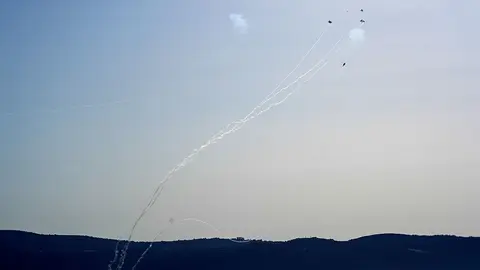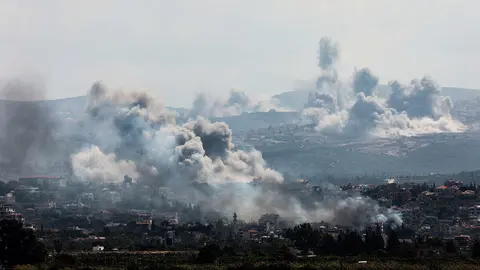Hezbollah strikes Tel Aviv for first time, marking new escalation in conflict with Israel
The Lebanese Shiite militia confirmed the launch of an Iranian ballistic missile at the Mossad headquarters, which it blames for the coordinated explosions of thousands of electronic devices last week
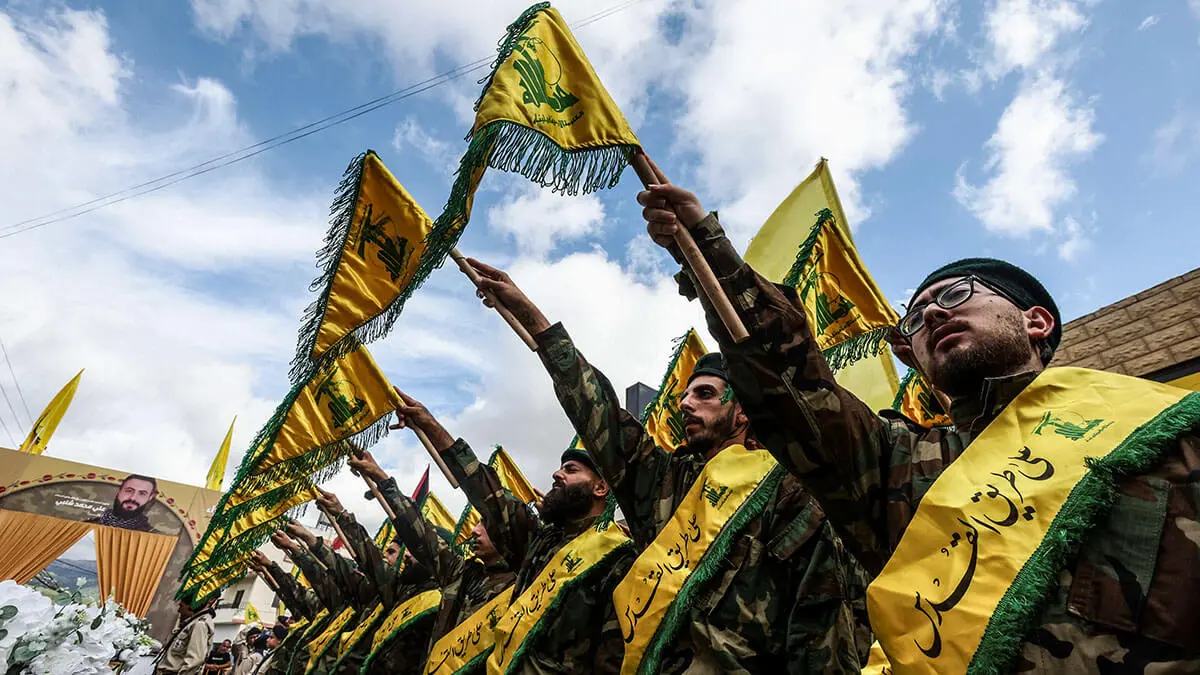
For the first time since the conflict between Israel and Hezbollah began almost a year ago, the Lebanese Shiite militia backed by the Iranian regime has launched a missile at the city of Tel Aviv, the country's economic and commercial centre.
As with the 7 October attack, alarms began ringing at 6:30 a.m. in central Israeli locations such as Tel Aviv, Glilot, Ramat Gan and Netanya, hours after the Israel Defence Forces destroyed a Hezbollah weapons depot south of Beirut.
#BREAKING Hezbollah fired a missile to Tel Aviv area, which was intercepted by Israel army pic.twitter.com/QE5ro9ptji
— Guy Elster (@guyelster) September 25, 2024
The terrorist group claimed responsibility for the attack, saying it had fired an Iranian-made Ghadr 1 medium-range ballistic missile at the Mossad headquarters, which it accuses of carrying out the recent explosions of thousands of communication devices belonging to members of the militia.
The projectile launched from Lebanon was intercepted by Israel's Honda de David air defence system, causing no casualties or damage. Shortly afterwards, the army hit the launcher from which the Iranian missile was fired.
As fighting between Israel and Hezbollah continues on both sides of the border, the Islamic Resistance in Iraq, a Tehran-backed militia group, confirmed the launch of a drone into Israeli territory, stating that it was targeting ‘a location near the Jordan Valley’.
The Israel Defense Force states that the Surface-to-Surface Missile Launcher which was utilized for this morning’s Hezbollah Ballistic Attack on the Tel Aviv Metropolitan Area in Central Israel, was just Targeted and Destroyed by an Israeli Airstrike on the Nafakhiyeh Area of… pic.twitter.com/WLbpkjDacW
— OSINTdefender (@sentdefender) September 25, 2024
Since 8 October, when Hizbollah began its offensive against Israel in support of Hamas, the Lebanese militia is estimated to have launched more than 8,000 shells into Israeli territory, causing the evacuation of some 60,000 people from the northern region.
On the Lebanese side, thousands of people have also been forced to flee their homes by the ongoing fighting. On the other hand, recent Israeli air strikes on Hezbollah positions across Lebanon have left more than 500 people dead and more than 5,000 wounded, according to Lebanese Health Ministry figures.
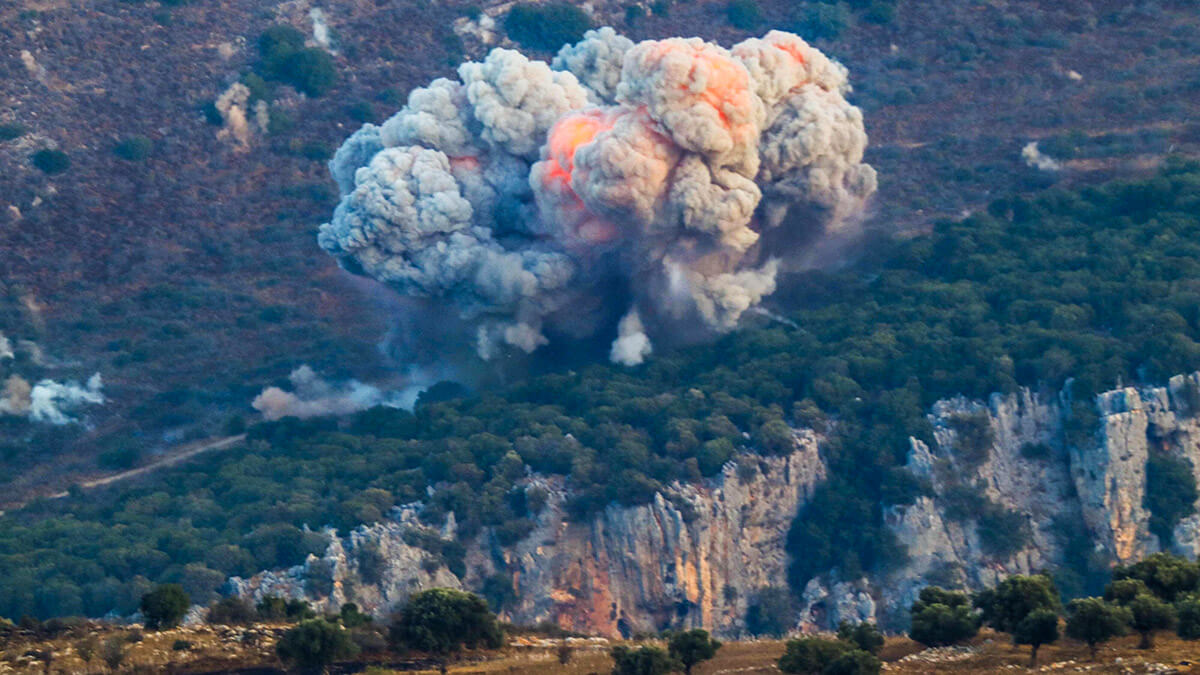
In this regard, the IDF has warned displaced residents of southern Lebanon not to return to their homes, vowing to maintain ‘offensive operations’ against Hezbollah, which refuses to cease its attacks on Israel until a ceasefire is reached in Gaza.
According to Israeli public broadcaster KAN, the army is even preparing for ‘a possible ground operation’ in Lebanon, which the military authorities have not ruled out.
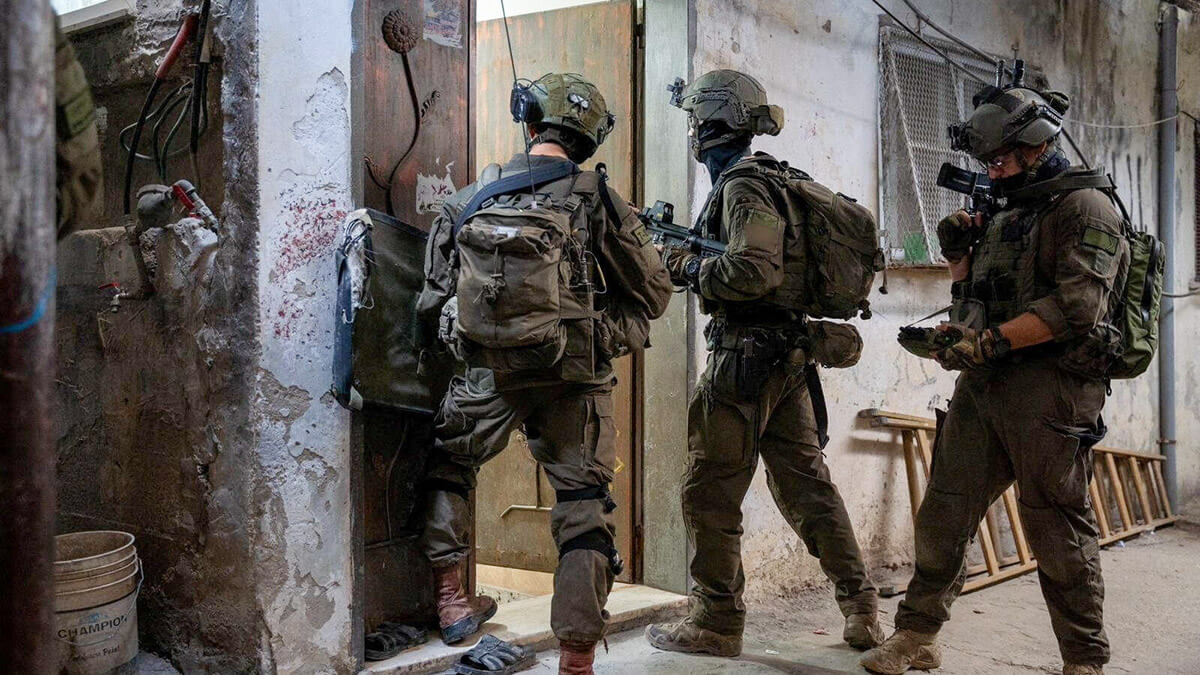
Moreover, the daily Haaretz - quoting unnamed Israeli army sources - has reported that around 40,000 militiamen and mercenaries from several Arab countries ‘including Iraq and Yemen’ have reportedly arrived in Syria to help Hezbollah in its war against Israel.
The fighters are allegedly ‘in the vicinity of the Golan Heights’ awaiting orders from Hezbollah leader Hassan Nasrallah to join the fight, the Israeli daily said, without citing any evidence to support the military source's claim. ‘If necessary, we will also act in Syria to make it clear to Bashar al-Assad that we no longer accept his presence there,’ a senior defence official told the media outlet.
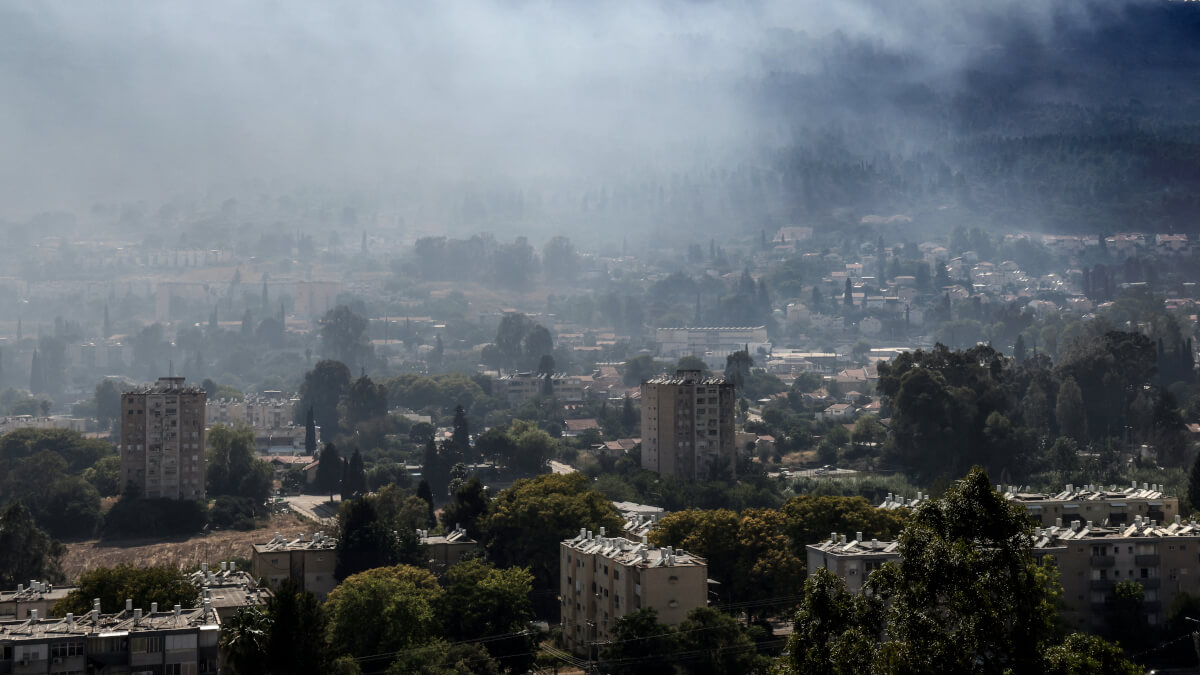
Iran rules out attack on Israel in support of Hezbollah
Recent Israeli operations have exposed Hezbollah's vulnerability, prompting the Lebanese militia to call on Iran to attack Israel, which Tehran has so far ruled out as ‘not the right time’, two Israeli officials and a Western diplomat confirmed to Axios.
A new direct Iranian attack on Israel would further destabilise the region and would probably push the US into the fray. For the time being, Washington has already announced the dispatch of a number of additional troops to the region in response to rising tensions between Israel and Hezbollah.

